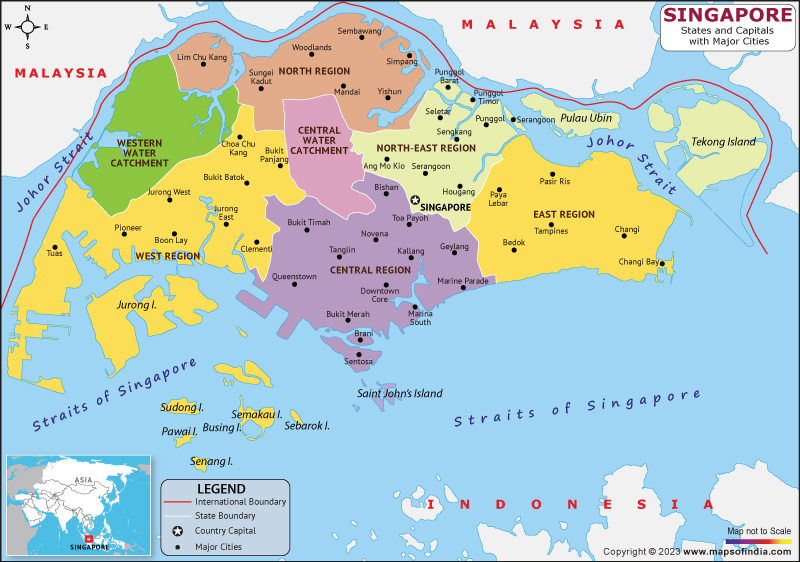In 2025, Singapore was declared the richest in Asia (GDP per capita by purchasing power parity). With an estimated per capita income of over $153,000, Singapore's economy is wealthier than wealthier resource countries, again Qatar and the UAE.
The small island nation found strength not in natural resources like minerals, oil, and gas found in many Gulf nations, but in finance, global trade and business, advanced manufacturing, and innovation. Singapore's strong, reliable governance, along with its significance in education and infrastructure, has positioned the nation as a global business and investment hub.
Singapore became successful not just by vision alone, but combined with long-range planning, economic discipline, and strategic global connections. In a more competitive global economy, Singapore is a prime example of economic stability, prosperity, and smart economic development in Asia today.
Check Out: List of Top 10 Best Places to See Rainbows in the World

Singapore: Richest Country in Asia
In 2025, Singapore has the distinction of being the richest country in Asia in GDP per capita (purchasing power parity) at income levels exceeding $153,000. While many wealthy countries often rely on natural resources, the economy of Singapore is based on finance, international trade, high-tech manufacturing, and innovation.
The success of Singapore comes from strong governance, a business-friendly environment, world-class infrastructure, and a very well-educated workforce. The city-state's location has also facilitated its ability to serve as a global nexus for commerce and logistics.
Despite its small size, as well as a lack of natural resources, Singapore has established a pattern of resilience and economic growth. In addition to its long-term planning and stability, Singapore values its global partnerships. These values allow Singapore to serve as a model for sustainable development and prosperity in Asia and beyond.
Why is Singapore the Richest Country in Asia?
Geographic Advantages: Strategically planned and located between major global trading routes and two oceans, Singapore has emerged as one of the busiest ports in the world, as well as a shipping and logistics hub.
Strong Governance: The country has a very strong government mechanism, which is efficient and free from corruption. A stable structure of governance has established a framework for investment and businesses to operate under.
Open Economy: The city-state has been a proponent of free trade, low taxation, and a supportive regulator.
Education: Singapore has invested in education by developing a skilled and educated population, ultimately driving innovation and productivity.
Connectivity: Singapore's connections (relationships and networks) with international partners have positioned it to meaningfully enter the global economic market and become a part of it.
Economic Diversification: Singapore is not a natural resource-based economy; it is grounded in finance, technology, manufacturing, and the visitor economy.
Infrastructure: Modern transport and communications, supported by urban planning, add to efficient commerce and a good standard of living.
Comments
All Comments (0)
Join the conversation